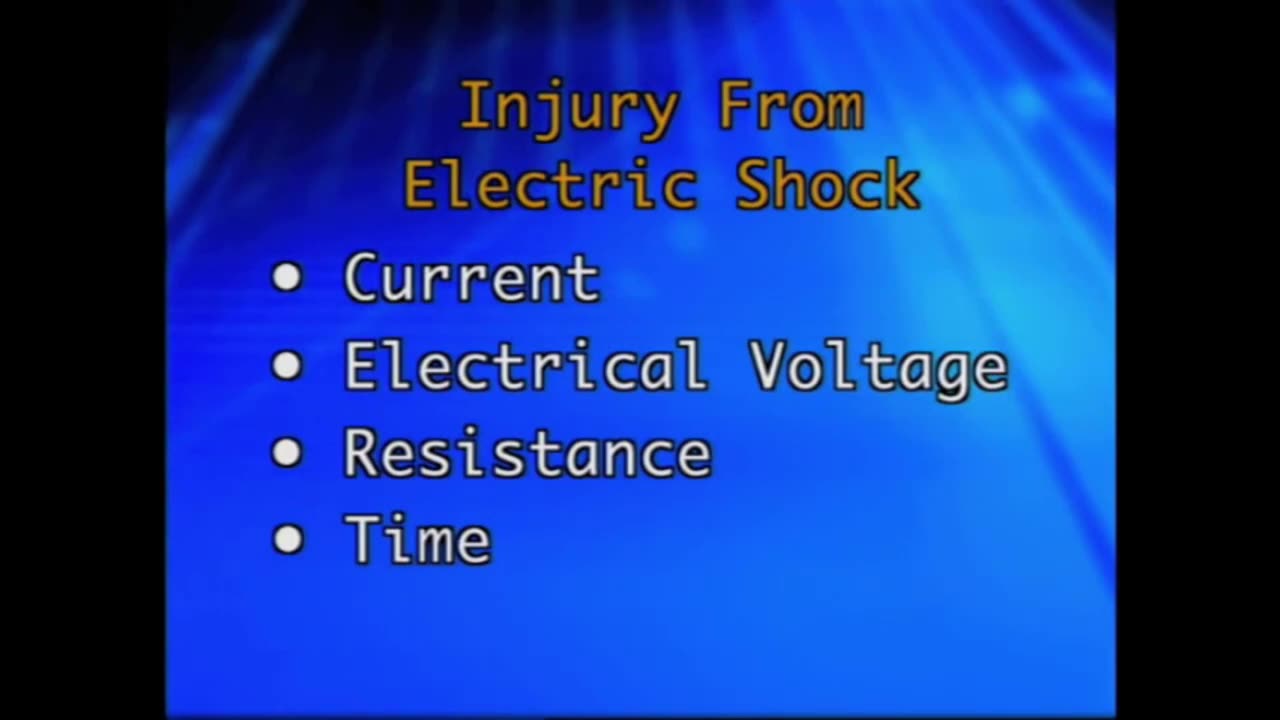Premium Only Content

ELECTRICAL SAFETY
**Electrical Safety** training is crucial for anyone working with or around electrical systems, whether in construction, industrial environments, or offices. It equips individuals with the knowledge to identify hazards, implement safety measures, and comply with electrical safety standards.
### **Key Components of Electrical Safety Training**
#### 1. **Understanding Electricity Basics**
- Fundamentals of electricity (voltage, current, resistance, etc.)
- Types of electrical systems: AC vs. DC
- Conductors, insulators, and grounding principles
#### 2. **Electrical Hazards**
- Common risks: electric shock, burns, arc flash, and arc blast
- Identifying potential hazards in the workplace
- Effects of electricity on the human body
#### 3. **Electrical Standards and Regulations**
- OSHA (Occupational Safety and Health Administration) requirements
- NFPA 70E: Standard for Electrical Safety in the Workplace
- National Electrical Code (NEC)
#### 4. **Personal Protective Equipment (PPE)**
- Insulated gloves, boots, and tools
- Arc-rated clothing and face shields
- Selection and care of PPE
#### 5. **Safe Work Practices**
- Lockout/Tagout (LOTO) procedures
- Working with energized equipment
- Importance of proper isolation and grounding
#### 6. **Inspection and Maintenance**
- Checking for damaged cords, wires, and equipment
- Testing and maintaining electrical systems
- Using tools like multimeters safely
#### 7. **Emergency Response**
- Responding to electrical incidents and injuries
- Administering first aid for electrical shock or burns
- Fire safety and extinguishers for electrical fires
#### 8. **Hands-On Training**
- Simulating real-world scenarios
- Practice in identifying and mitigating hazards
- Using safety tools and equipment
### **Who Should Attend Electrical Safety Training?**
- Electricians and electrical engineers
- Maintenance and repair workers
- Construction workers
- Safety officers and supervisors
### **Benefits of Electrical Safety Training**
- Reduces workplace accidents and injuries
- Promotes compliance with legal and industry standards
- Builds confidence and competence in handling electrical systems
Would you like information about specific training providers, certification, or course locations?
-
 1:25:53
1:25:53
Kim Iversen
3 days agoStriking Back: Taking on the ADL’s Anti-Free Speech Agenda
67.8K33 -
 49:35
49:35
Donald Trump Jr.
11 hours agoA New Golden Age: Countdown to Inauguration Day | TRIGGERED Ep.202
154K170 -
 1:14:34
1:14:34
Michael Franzese
10 hours agoWhat's Behind Biden's Shocking Death Row Pardons?
65.3K47 -
 9:49
9:49
Tundra Tactical
9 hours ago $15.74 earnedThe Best Tundra Clips from 2024 Part 1.
88.6K7 -
 1:05:19
1:05:19
Sarah Westall
9 hours agoDying to Be Thin: Ozempic & Obesity, Shedding Massive Weight Safely Using GLP-1 Receptors, Dr. Kazer
78.5K19 -
 54:38
54:38
LFA TV
1 day agoThe Resistance Is Gone | Trumpet Daily 12.26.24 7PM EST
51.7K9 -
 58:14
58:14
theDaily302
18 hours agoThe Daily 302- Tim Ballard
57.1K8 -
 13:22
13:22
Stephen Gardner
11 hours ago🔥You'll NEVER Believe what Trump wants NOW!!
106K250 -
 54:56
54:56
Digital Social Hour
1 day ago $10.51 earnedDOGE, Deep State, Drones & Charlie Kirk | Donald Trump Jr.
59.2K5 -
 DVR
DVR
The Trish Regan Show
13 hours agoTrump‘s FCC Targets Disney CEO Bob Iger Over ABC News Alleged Misconduct
61.7K37